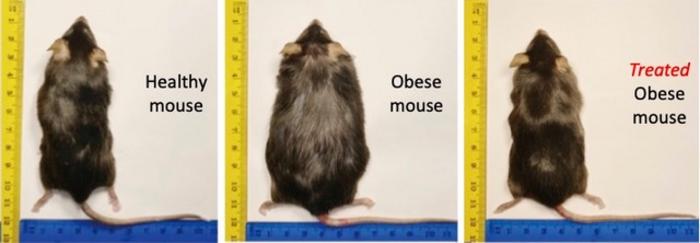AMHERST, Mass. — What if you could combat obesity by using a medication that directly targets the fat cells in your body? In a groundbreaking new study, researchers from the University of Massachusetts Amherst have developed a new way to combat obesity, using nanogel carriers — tiny molecules that transport substances within the body — to deliver a drug to the liver of obese mice. The results? A complete reversal of diet-induced diseases in the animals.
“The treated mice completely lost their gained weight, and we did not see any untoward side effects,” says S. Thai Thayumanavan, professor of chemistry and biomedical engineering at UMass Amherst.
Researchers utilized a unique invention named “IntelliGels” to selectively deliver a drug to the liver of obese mice. The mice were placed on a high-fat, high-sugar, high-cholesterol diet for 10 weeks, which doubled their weight, and then treated with the drug. Even while continuing their high-fat diet, the mice returned to a normal weight within five weeks of treatment. They also experienced decreased cholesterol levels and a resolution of liver inflammation.
“We came up with a very simple approach, using our unique invention – nanogels that we can direct selectively to different targets, which we call IntelliGels. They were custom-designed for hepatocyte delivery in the liver.” Prof. Thayumanavan elaborates in a university release.

This revolutionary research offers hope for millions struggling with obesity and related cardiometabolic disorders. The nanogel delivery method not only reversed obesity in mice but now that it is better understood, it also paves the way for developing treatments for other liver-based diseases.
Given the high prevalence of obesity, the potential impact of this treatment on public health is enormous. An award-winning start-up company, Cyta Therapeutics, has taken up the call to translate the results of this study to humans. However, researchers explain that much work remains to be done.
“There is a significant amount of development work to be conducted between mice and humans,” Prof. Thayumanavan notes, “but we are hoping it will eventually become a drug.”
Drugs that mimic synthetic thyroid hormone, known as thyromimetics, have been viewed as a potential solution to various metabolic conditions, including obesity. However, the challenge has consistently been delivering these drugs to the right location in the body without causing side-effects. The recent study successfully overcame this challenge using nanogel carriers, adding a significant milestone in treating obesity and related disorders.
The study underscores the importance of targeted drug delivery and its potential benefits, and as obesity continues to be a pressing public health issue, such innovations bring renewed hope.
The study is published in the journal PNAS NEXUS.


Excellent findings. Hope the clinical trials yield exciting results!